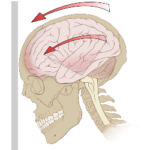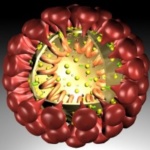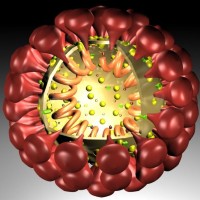
Coronavirus (COVID-19)
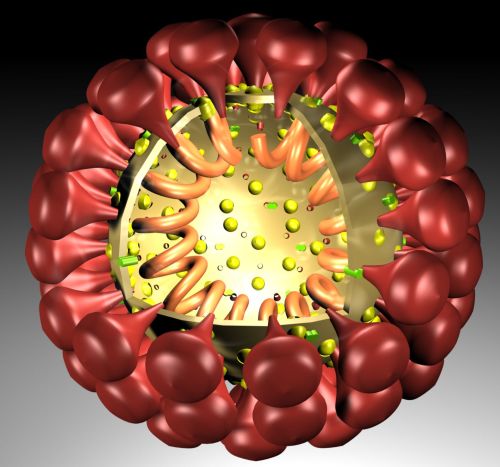 We have been getting lots of questions here at the office regarding COVID-19. It seems that everyone thinks they have it or they are worried about getting it. While there is a lot that we still don’t know about this virus, there are some things that we do and I am going to share these with you as well as provide resources for understanding the rates of infection here in Washington State as well what we can do to prevent transmission.
We have been getting lots of questions here at the office regarding COVID-19. It seems that everyone thinks they have it or they are worried about getting it. While there is a lot that we still don’t know about this virus, there are some things that we do and I am going to share these with you as well as provide resources for understanding the rates of infection here in Washington State as well what we can do to prevent transmission.
What is COVID-19?
Coronaviruses have been around for a long time. Everyone has been infected with a coronavirus at some point of their lives and the symptoms probably looked like a simple head cold or at worst had similar features of the flu. Most coronavirus’s cause a mild illness, but more recently there has been severe acute respiratory syndrome (SARS) and Middle East respiratory syndrome (MERS), which cause much more severe symptoms. COVID-19 seems to have a range of severity from mild to moderate symptoms. Often times worse than the common cold, but not quite as bad as SARS and MERS.
COVID-19 Signs/Symptoms?
Viruses have what is called a “spike protein” that determines its pathogenicity or where it’s likely going to infect the body. Most respiratory viruses infect the upper airway’s (i.e. sinus, pharynx, and throat) and then can potentially move downwards into the lungs causing bronchitis and pneumonia. COVID-19 appears to pass by the upper airways for many people and settles directly into the lower lungs. This infection of the lower lungs will prompt the body to develop a fever right at the start and will also make breathing more labored as this inflammation tends to create fluid/mucus in the lower lungs where most of our oxygen transfer takes place. There will also be a cough triggered by the fluid accumulation and so far the reports suggest it’s a non-productive (dry) cough. This will be the presentation of those who acquire a more moderate to severe infection and seem to be those already with lowered respiratory health.
For others, there may be only the prodrome of heightened immune stimulation during viral incubation such as: muscle aches, fever, nasal congestion, headache, and sore throat. This can make it difficult for someone to realize that they are infected with COVID-19 and not some other virus that causes a head cold.
So, to summarize, the symptoms of COVID-19 as we understand them now include just about any symptom you could expect from a respiratory viral infection. However, the more concerning symptoms would be fever, cough, fatigue, and shortness of breath. Much more concerning in the elderly, immuno-compromised, and those with underlying lowered respiratory health.
Who is Most at Risk for complications?
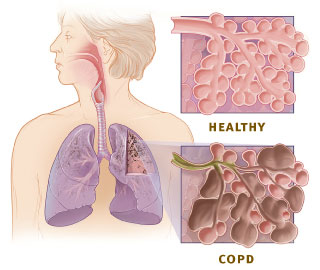 As I detailed above, this infection happens in the lungs making those with reduced lung health more at risk. This would include smokers and those with COPD (chronic bronchitis and emphysema). From the reports coming out of China it appears that those with more severe symptoms are those who already have pulmonary disorders. Outside of Hubei Province, China, the fatality rate appears to be likely no more than 1-2%, making it worse than the seasonal flu at a fatality rate of 0.1%. This would make preventative practices extremely important for those who smoke and/or have COPD, and those in close contact with these people.
As I detailed above, this infection happens in the lungs making those with reduced lung health more at risk. This would include smokers and those with COPD (chronic bronchitis and emphysema). From the reports coming out of China it appears that those with more severe symptoms are those who already have pulmonary disorders. Outside of Hubei Province, China, the fatality rate appears to be likely no more than 1-2%, making it worse than the seasonal flu at a fatality rate of 0.1%. This would make preventative practices extremely important for those who smoke and/or have COPD, and those in close contact with these people.
What to Do if I think I am infected?
Practitioners are now able to test for the coronavirus once more common causes of respiratory illness are ruled out, however, the recommendations at this point are still to quarantine yourself for a period of 14 days if you have traveled from one of the areas where there is wide spread of the virus (China, Iran, South Korea, Japan, and Italy), have had known exposure to a person with COVID-19, and/or have signs/symptoms of the virus. During these 14 days you are to watch and wait for signs of fever and if you develop a fever you are to contact your local health jurisdiction. In the case of those in Bellingham it would be The Whatcom County Health Department.
Remember, the symptoms of COVID-19 as we understand them now are: cough, shortness of breath, and fever. There may be features of influenza (i.e. body aches, nasal congestion, loose stool, and sore throat), but these are typically mild if present at all. If you are experiencing upper respiratory (neck and above) symptoms and to your knowledge have not been exposed to COVID-19 and have not traveled to one of the countries listed above the likelihood that you have COVID-19 is low and it’s more likely that you are just experiencing the effects of one of the many more common viruses out there.
How Do I Prevent Infection?
Transmission at this point appears to be via respiratory droplets, so like many virus’s prevention comes from regular hand washing with soap and hot water, avoidance of those infected, and avoidance of touching eyes, nose, and mouth. It may not prevent infection, but since complications seem to be higher in those already in poor health we recommend maintaining a healthy day-to-day life style of consuming an anti-inflammatory diet, regular exercise, good hydration, and healthy sleep pattern.
Is there Treatment?
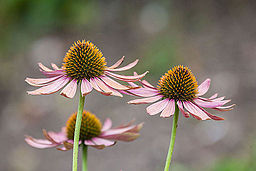 Currently there is no treatment for COVID-19. Antibiotics are only effective against bacteria and COVID-19 is a virus. Vaccines need extensive testing before they can be administered to the general public and it is unclear if any of our current pharmaceutical anti-virals are effective against COVID-19. Naturopathic medicine utilizes several different herbs for their antiviral activity and while none have been tested against COVID-19 specifically, several have been found to have antiviral activity against coronaviruses like COVID-19. These herbs include; Echinacea, Elderberry, Licorice, Ginger, Goldenseal, Astragalus, and Andrographis. If you haven’t yet, please check out my Cold & Flu Toolbox article.
Currently there is no treatment for COVID-19. Antibiotics are only effective against bacteria and COVID-19 is a virus. Vaccines need extensive testing before they can be administered to the general public and it is unclear if any of our current pharmaceutical anti-virals are effective against COVID-19. Naturopathic medicine utilizes several different herbs for their antiviral activity and while none have been tested against COVID-19 specifically, several have been found to have antiviral activity against coronaviruses like COVID-19. These herbs include; Echinacea, Elderberry, Licorice, Ginger, Goldenseal, Astragalus, and Andrographis. If you haven’t yet, please check out my Cold & Flu Toolbox article.
Will COVID-19 Come to Bellingham?
It’s too early to tell how significant the spread will be here in the United States, but most experts agree that COVID-19 will make its way through our country and Bellingham will be at risk just a much as any city. I tend to agree with what New York Times correspondent Donald G. McNeil Jr. had to say regarding the spread of COVID-19. It will most likely make an appearance early this year, but then quickly “burn out” as the weather gets hotter as viruses tend to not do well in hot weather, however, we will see the worst of COVID-19 as it spreads throughout the winter of 20’/21’. At the time I wrote this article there were no confirmed cases in Whatcom County, for updates I recommend visiting Whatcom County Health Departments website and for more up to date information on COVID-19, please visit the CDC’s COVID-19 Situation Summary.
